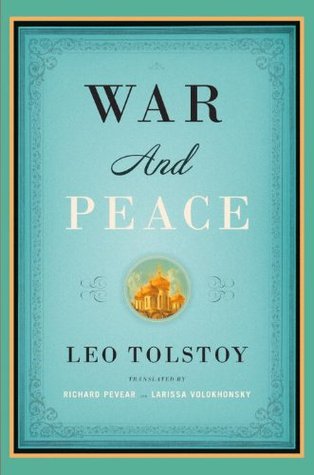More on this book
Community
Kindle Notes & Highlights
There seemed to be no focus, no artistic unity to the work, no real beginning, and no resolution. It was as if the sheer mass of detail overwhelmed any design Tolstoy might have tried to impose on it. Such observations were made by Russian critics, including Tolstoy’s great admirer, Ivan Turgenev, and when the book became known in translation, they were repeated by Flaubert and by Henry James, who famously described War and Peace as a “large loose baggy monster.”
Translation is not the transfer of a detachable “meaning” from one language to another, for the simple reason that in literature there is no meaning detachable from the words that express it. Translation is a dialogue between two languages.
“Il n’y a rien qui restaure, comme une tasse de cet excellent thé Russe après une nuit blanche,”‡
“What are you doing!” she said desperately. “Il s’en va et vous me laissez seule.”†
“Allons, je vous reconduirai. Tâchez de pleurer. Rien ne soulage comme les larmes.”†
“Mathematics is a great thing, my lady. And I don’t want you to be like our stupid women here. Much patience, much pleasure.” He patted her on the cheek. “It will knock the foolishness out of your head.”
On arriving in Petersburg, Pierre did not inform anyone of his arrival, did not go out anywhere, and started spending whole days reading Thomas à Kempis,5
Pierre was struck for the first time at this meeting by the infinite diversity of human minds, which makes it so that no truth presents itself to two people in the same way. Even those members who seemed to be on his side understood him in their own fashion, with limitations and alterations which Pierre could not agree to, since his main need consisted precisely in conveying his thought to others exactly as he understood it himself.
The main thing he wanted to weep about was a sudden, vivid awareness of the terrible opposition between something infinitely great and indefinable that was in him, and something narrow and fleshly that he himself, and even she, was. This opposition tormented him and gladdened him while she sang.
Les mariages se font dans les cieux.”*
I am writing all this to you, my friend, only so as to convince you of the Gospel truth that has become life’s truth for me: not a single hair will fall from our heads without His will. And His will is guided only by His boundless love for us, and therefore everything that happens to us, everything, is for our own good.
And they all struggle and suffer, and torment and ruin their souls, their eternal souls, to achieve blessings that last a moment. Not only do we know it ourselves—Christ, the Son of God, came down to earth and told us that this life is a momentary life, a trial, yet we keep holding on to it and hope to find happiness in it.
Princess Marya provided herself with a full wanderer’s outfit: a shirt, bast shoes, a kaftan, and a black kerchief. Often, going to the secret chest, Princess Marya would pause, unable to decide whether the time had come to fulfill her intention.
“If only once in my life I could chase down a seasoned wolf, I’d ask for nothing more!” he thought,
“The hearts of kings are in the hands of God.”4 Kings are the slaves of history. History, that is, the unconscious, swarmlike life of mankind, uses every moment of a king’s life as an instrument for its purposes.
To each of Napoleon’s phrases, Balashov could and would have objected; he continually made the movement of a man who wishes to say something, but Napoleon interrupted him. For instance, about the madness of the Swedes, Balashov was about to say that Sweden was an island when Russia backed her; but Napoleon cried out angrily to stifle his voice. Napoleon was in that state of irritation in which a man has to talk and talk and talk, only so as to prove his rightness to himself. It was becoming oppressive for Balashov: as an envoy, he was afraid of losing his dignity and felt it necessary to
...more
Clearly it was Napoleon’s long-standing conviction that the possibility of mistakes did not exist for him, and to his mind everything he did was good, not because it agreed with any notion of what was good and bad, but because he did it.
French letters, given numerical values like the Hebrew, in which the first nine letters represent units, and the rest tens, will have the following significance: Writing the words l’empereur Napoléon in this alphabet of numbers, it turns out that the sum of the figures equals 666 and that Napoleon is therefore that beast prophesied in the Apocalypse.
Tout vient à point à celui qui sait attendre.*
That’s the whole point: to cast off the lie, and if it’s war it’s war, and not a game. As it is, war is the favorite pastime of idle and light-minded people …
Many historians say that the battle of Borodino was not won by the French because Napoleon had a cold, that if he had not had a cold, his instructions before and during the battle would have been of still greater genius, and Russia would have perished, et la face du monde eut été changée.*
The absence of suffering, the satisfaction of one’s needs, and the resulting freedom to choose one’s occupation, that is, one’s way of life, now seemed to Pierre the highest and most unquestionable human happiness.
we allow that human life can be governed by reason, the possibility of life is annihilated.


